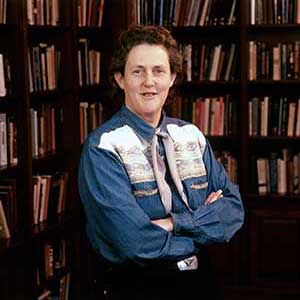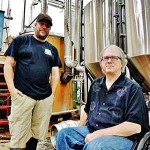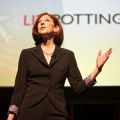Temple Grandin feels a special affinity for Silicon Valley, which she believes wouldn’t exist without the brainpower of high-functioning “Aspies,” folks who fall on some measure of the Autism Spectrum Disorder.
“One of the things I’m very concerned about is that people who are very quirky and different, that nothing is being done to get them turned on to things that could be good careers, careers like those in Silicon Valley,” says Grandin, chatting over the phone in her rapid-fire matter-of-fact diction.
As the most famous person in the world with a severe spectrum disorder, Grandin understands the potential locked inside. The world-renowned animal behaviorist and motivational speaker will touch down in Campbell Friday for a lecture at the Future Horizons Autism Conference, where she’ll discuss the roadblocks she faced in becoming an expert in her field and how to accommodate neurological differences in the classroom. Grandin’s mother, Eustacia Cutler, will also speak at the event.
Cutler raised Grandin in the 1950s and ‘60s, during a time when autism was just named and misunderstood, as a psychosis triggered by emotionally distant mothers. “I was very fortunate,” says Grandin, who became the first person in the world with autism to write an autobiography that offered a glimpse into the autistic mind. “My mother got very good advice from a neurologist in Boston who gave the same type of treatment that’s done today. Basically, he said, you have got to work with these kids. You can’t let them sit in the corner rocking.”
Treatment of autism disorders is much the same as what that doctor advised, but the education system has become less accommodating, Grandin says.
“There’s a lot of anxiety for [those with autism] because some personal social circuits are not hooked up,” explains Grandin, whose own brain processes information in photo-realistic slideshows, much like a library of Google images, while skipping social cues like facial expression and displays of emotion.
“The problem I’m seeing, and what I want to talk about, is that kids aren’t pushed enough,” says Grandin, who began working a sewing job when she was 13 and spent her later teen years helping out at a relative’s cattle ranch, which sparked in her a fascination that led to a career as a leading expert in livestock facility engineering. “This was during a time when they threw those of us on the severe end of the spectrum into institutions. They just put us away.”
Though she’s touched on more controversial issues of vaccine-caused autism in the past, diplomatically entertaining the possibility that maybe some children regressed into autism post-vaccination, she declines to comment on the subject now. Autism isn’t going away and it’s not something that begs a cure.
“It just distracts from the real issues I want to focus on,” she says, abruptly. “If you find a cure, you won’t have replacements for Silicon Valley.”
Temple Grandin speaks about Autism
Fri, July 26, 1pm
$65 and up
Campbell Heritage Theatre
fhautism.com

 Santa Clara Valley Brewing
Santa Clara Valley Brewing  SP2 Communal Bar + Restaurant
SP2 Communal Bar + Restaurant 









